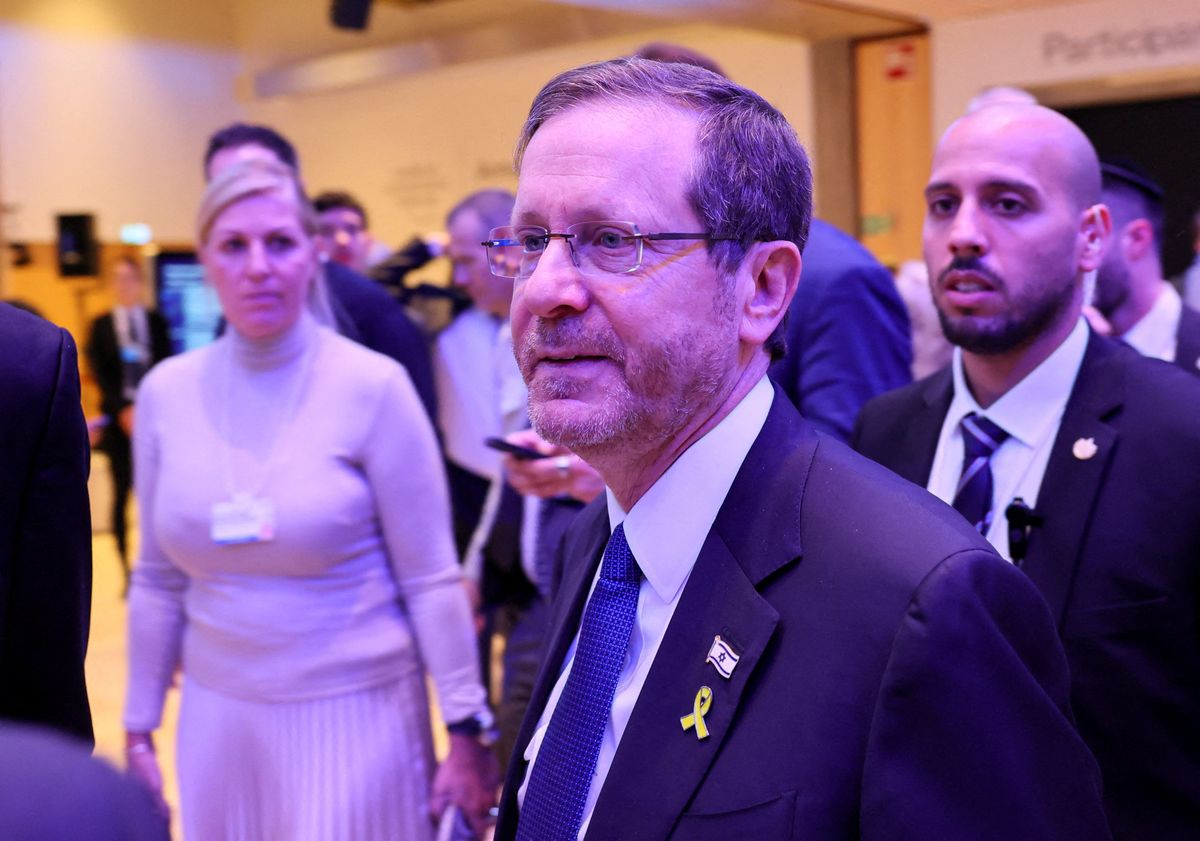It is easy to be disheartened by the drumbeat of bad news emanating from Gaza, but one of the most neglected parts of the discussion with Israeli President Isaac Herzog at Davos was when he expressed his optimism about the normalization process with other countries in the region.
While there can be no rapprochement with Hamas or Iran, which he called “an empire of evil,” Herzog said the normalization of relations with Saudi Arabia remains “an opportunity to move forward toward a better future.”
“I would encourage all parties discussing the option of normalization with Saudi Arabia. I believe it is a game-changer and follows suit with the courage of nations such as Egypt, Jordan, and the Abraham Accord nations, the United Arab Emirates, the Kingdom of Morocco and the Kingdom of Bahrain. It will mean a world change,” he said.
There is speculation that the attack by Hamas on Oct. 7 was intended to wreck any moves toward warmer relations. If that was the intent, it does not appear to have succeeded.
Saudi Foreign Minister Prince Faisal Farhan was in Davos and called for an immediate cease-fire before future negotiations can take place. But he said that the Saudis remain interested in a normalization deal with Israel that allows for a two-state solution.
US Secretary of State Antony Blinken was in Saudi Arabia earlier this month, where he met Crown Prince Mohammed bin Salman and told reporters that the Saudis remain engaged in pursuing a deal. The Times of Israel reported that technical conversations between the US and the Saudi sides are still taking place.
Back in Davos, Herzog offered a fascinating glimpse of the even bigger picture. He said that at the G20 summit in New Delhi last September, President Joe Biden unveiled his plan for a rail and shipping corridor that would deliver energy resources and digital connectivity between Europe and the South China Sea, establishing the Middle East as a hub for economic activity. This alternative to China’s Belt and Road Infrastructure program received enthusiastic backing from the European Union, India, Saudi Arabia, the UAE, Jordan and … Israel. The Americans saw the project, which has neither a timeline, budget, nor route yet, as a means of binding the region together – with the exception of Iran.
Herzog said it would mean improved connectivity between the United States and Australia, without going through the Pacific.
“This is a grand vision – a vision that has been derailed by an empire of evil (Iran). But it will come back undoubtedly because of the desire of nations to move to peace,” Herzog said.



















